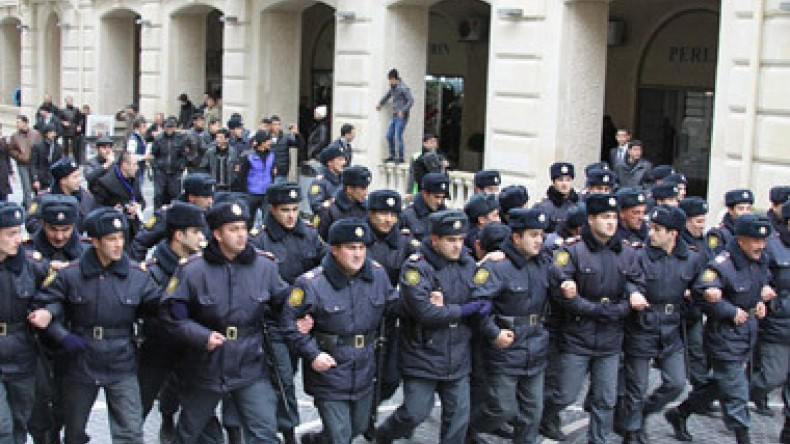
Radio Liberty: Reducing social spending because of falling of oil prices can cause civil unrest in Azerbaijan
One year after the presidential ballot in which incumbent Ilham Aliyev was reelected for a third term, Azerbaijan's opposition National Council of Democratic Forces (NSDS) convened a mass meeting in Baku to protest the unprecedentedly harsh crackdown launched by the authorities in the wake of that vote, an article published on Radio Liberty site reads.
The article reads that Human Rights Watch calculates that since Azerbaijan assumed the rotating chairmanship of the Council of Europe, the government has "dramatically escalated its attack on activists, with authorities arresting at least 11 people" and jailing at least nine others on politically motivated charges following "flawed trials."
As it is noted in the article that wave of arrests has elicited criticism not just from human rights watchdogs such as Human Rights Watch, but also from the European parliament and U.S. President Barack Obama. Former U.S. Ambassador to Baku Richard Kauzlarich called earlier this month for the U.S. to impose sanctions against Azerbaijan.
The article reads that several days afterwards, President Aliyev signed an amnesty the same day, the Azerbaijani parliament adopted amendments to the law on NGOs tightening the conditions under which they may receive foreign grants.
“That pattern of reprisals alternating with occasional tactical concessions dates back to the era of President Aliyev's father and predecessor, Heidar Aliyev.”
Meanwhile, Azerbaijan faces a more tangible and immediate threat in the form of falling oil prices. As of October 22, the oil price grows to $86.58.
The author writes that in 2013, crude oil accounted for 84.44 percent of Azerbaijan's total exports. If the price of oil falls below $80 per barrel, the ensuing decline in budget revenues could constrain the Azerbaijani authorities to cut social spending.
Implementing drastic cuts in the run-up to the parliamentary elections in the fall of 2015 could, however, spark spontaneous popular unrest on the lines of the violent protests in Quba in March 2012 and Ismailly in January 2013, the article reads.
Newsfeed
Videos






























